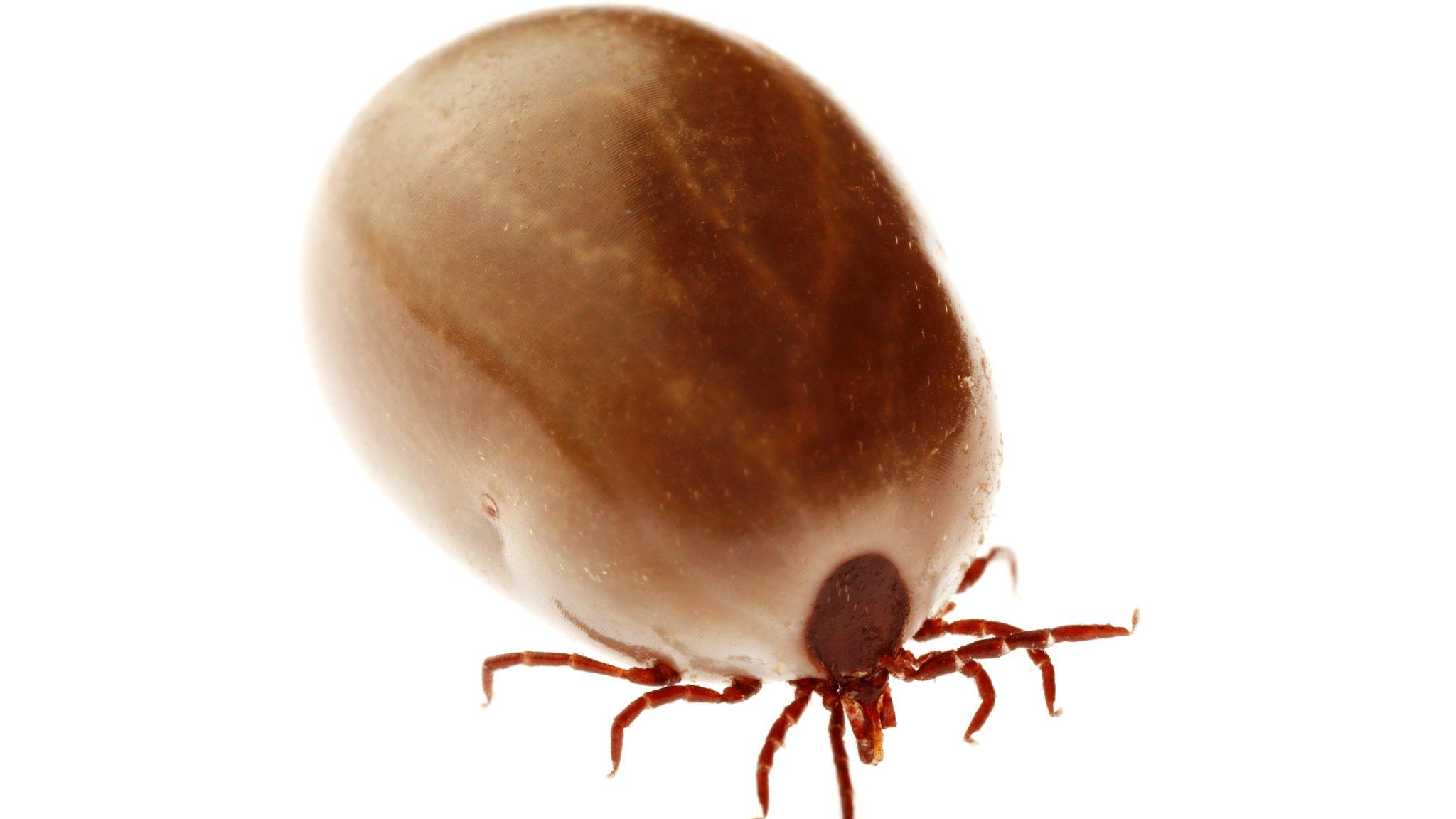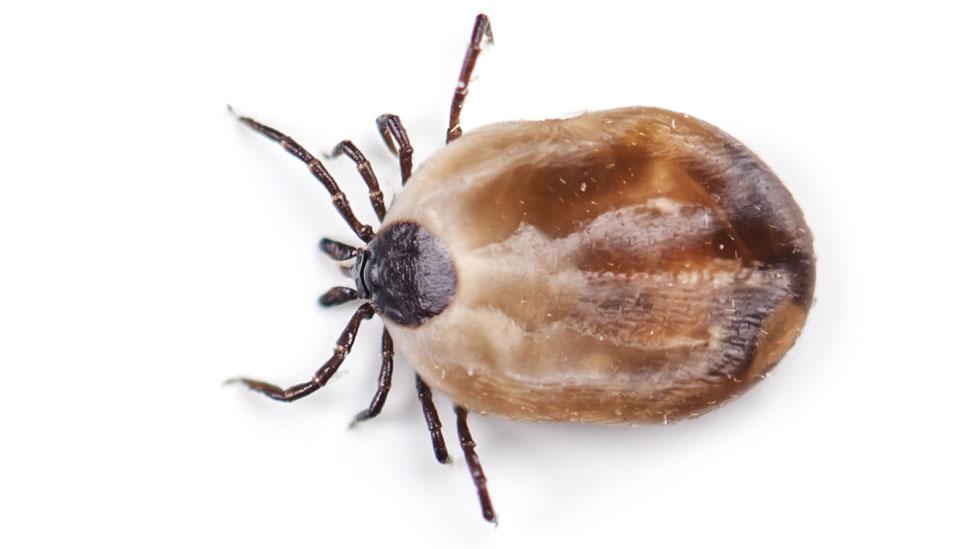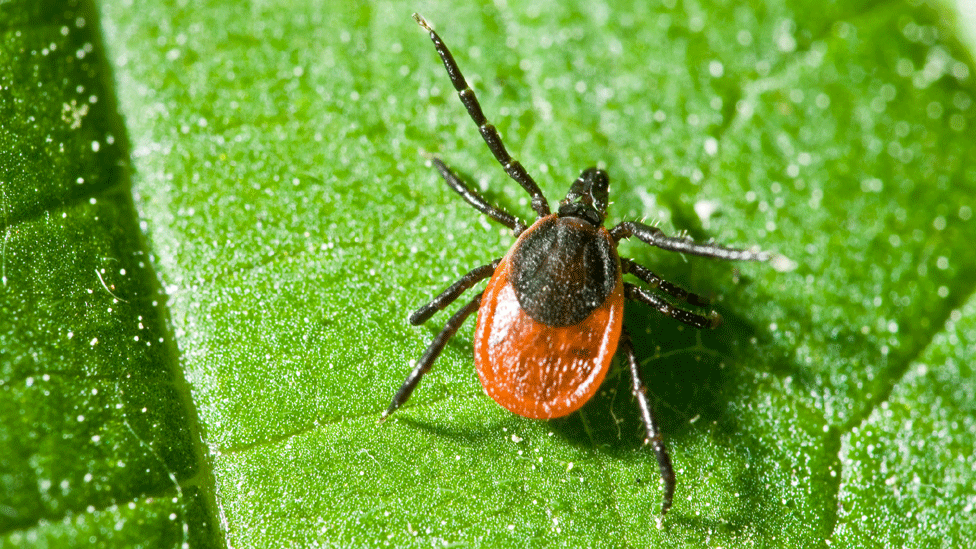Lyme disease sufferer claims bee stings help control her symptoms
- Published

Ingrid Watt says the bee sting therapy gives her more energy
A woman with Lyme disease has claimed being stung by bees helps ease her symptoms.
Ingrid Watt, 36, who grew up in Orkney and now lives in Inverness, believes she has had the disease, which be transmitted to humans by tick bites, since she was 18.
Underlying health problems became worse five years ago and included reoccurring shingles and neurological issues.
She believes properties in the bee venom help control her Lyme disease.
The treatment is controversial and is unproven by evidence-based medicine.
Some experts have expressed concerns about the practice and warned of potential side-effects, such as anaphylaxis.
'More energy'
Mrs Watt, who has tried mainstream GP-prescribed medicine, came across the alternative treatment while on a discussion forum used by other sufferers.
After further reading on the treatment, she began buying bees online. She says the insects involved are at the end of their lives and not endangered.
Using tweezers, her husband Darren puts bees on her back to sting her.
Mr Watt has this done 30 times every week.
She told BBC Radio Orkney: "At first we thought 'this is so crazy, what are we doing'.
"But within two weeks of having the bee therapy I feel I have more energy and less pain."
Mrs Watt said she plans to have her own bee hive so she can "give back" to nature in return for the help bees have given her.
- Published7 March 2017

- Published25 November 2016

- Published12 May 2016

- Published21 July 2015
